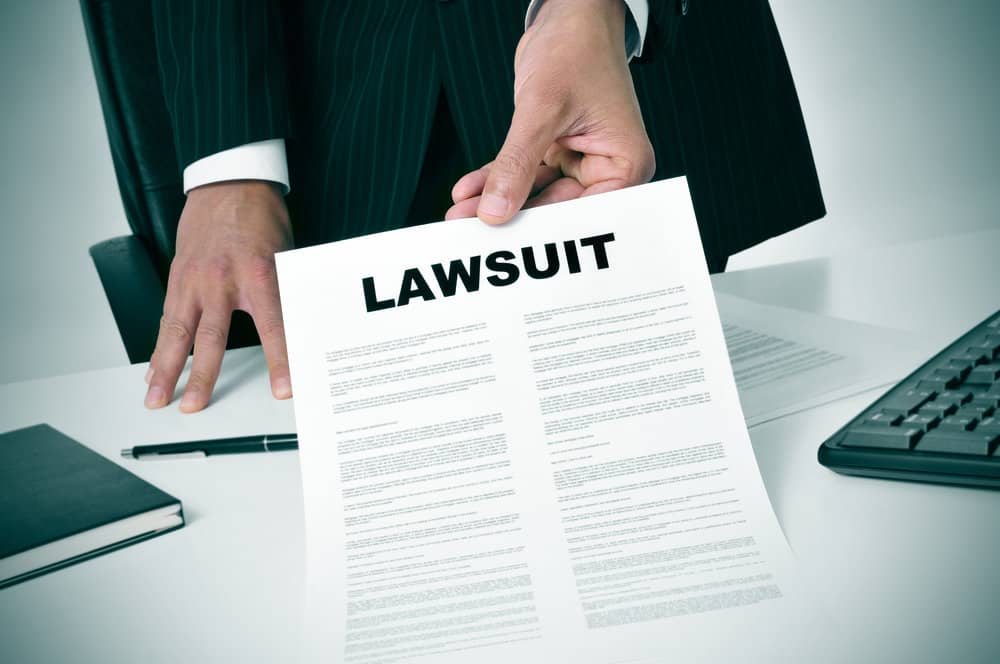The typical personal injury case has specific timelines. Here’s what to expect when you’re expecting compensation for an injury from an accident that was someone else’s fault.
Most personal injury cases don’t require filing a lawsuit in court because they settle at some point in the various stages of the claim process. Therefore, your personal injury settlement may occur at the following stages discussed in this article.
1. Steps to Take at the Incident and After
Whether you slipped on a wet floor, were involved in an accident, or got bitten by a dog due to someone’s negligence, you have a right to pursue a personal injury claim.
Specific steps are vital to protect your claim, meaning you must collect as much evidence as possible from the scene. Let’s take the example of a car accident:
- Take as many pictures as possible to confirm the damage to your vehicle, the position of the cars, and any other evidence like skid marks, road signs, etc.
- Obtain a copy of the police report
- Take all names and contact numbers of any witnesses
- Get immediate medical attention, even if you don’t think you are injured. If you leave it for a few days after the accident, the third-party insurer may argue that your injuries weren’t serious.

2. Book an Appointment with a Personal Injury Lawyer
Personal injury lawyers have the expertise to advise you on several aspects of a personal injury claim. You can decide to get more than one legal opinion or continue alone, especially if it’s a small claim. Still, it’s best to have legal support when you suffer a concussion or anything more severe.
Having a personal injury lawyer is also imperative if you have incurred medical bills and other expenses, lost time at work or your income, or if the other side is trying to blame you or arguing over the claim’s legitimacy. Read about the types of personal injury compensation.
If you decide to go ahead with a personal injury lawyer, they will collect as much evidence as possible from your medical records and bills.
They may hire an investigator to track evidence and find witnesses in more complex cases. Other professionals a lawyer may deem essential to your case are accident reconstruction specialists to prove how the accident happened and financial professionals to determine the extent of your lost earnings.
The time required for the investigative phase may take anything from a few days to a few months.
How Long Will Your Case Take to Settle?
Each personal injury claim is different, making placing an exact timeframe on the settlement difficult. Generally, the process can take a few months to a year, sometimes longer.
Usually, cases settle quickly in the following circumstances:
- There’s ample liability coverage.
- You had minor injuries.
- Your recovery is complete.
- The insurer accepts the person at fault for the incident was their insured party.
- There are no challenges from the insurance company about your injuries and required treatment.
Therefore, it all depends on the time required for your injuries to heal, with no more compensable losses to claim. The third-party insurer may also bring an unfair settlement to the negotiating table, meaning you may want to file a lawsuit. Lawsuits require preparation, and that will extend the process by a year or more.
When Can You Expect a Personal Injury Settlement?
Most cases don’t require lawsuits since they reach the settlement stage. Additionally, unless the claim appears unsupported, for example, you have no medical records to support your injury, the chances are you will receive some settlement. Remember, a personal injury lawyer won’t waste time on a case if they don’t think it’s legitimate with a substantial value.
The desired objective for you and your personal injury lawyer is the best outcome, which comes with patience.
What Can You Do to Speed Up Your Personal Injury Claim Timeline?
The timeline of your personal injury claim is usually linked to several factors, including your complete recovery. However, you can ensure the process doesn’t take longer by doing the following:
- Ensure your lawyer doesn’t encounter surprises that can adversely affect your claim by being forthright about everything. For example, preexisting health issues or injuries that might affect the claim or if you were driving under the influence
- Keep all your medical appointments, fill prescriptions, and follow-up care diligently.
- Provide all the documentation your lawyer requests quickly to help speed up the case.
The quickest outcome is not necessarily the best, so focus on the expected results.
3. Lawyer Submits Demand and Negotiates
Now that your lawyer is satisfied that you have reached the best medical improvement and possess all the facts and documentation, they can place an actual worth on your case. They will make a demand to the other party’s attorney or insurer.
After the demand, you wait for a counter-offer, leading to further offers and negotiations as each party points to the weaknesses and strengths as their bargaining tools. At this stage, the skills of an experienced lawyer are an essential tool.
If the negotiations reach a dead end, your personal injury lawyer will recommend filing a lawsuit to take the case to litigation.

4. Filing a Personal Injury Lawsuit
A lawyer filing a personal injury lawsuit in court begins the litigation phase. Each state has a statute of limitations, meaning you have a specific timeframe to file a personal injury claim; these range from one to six years.
Sometimes, an insurance company will want to avoid a court trial and decide to make a settlement offer at this point.
Filing the lawsuit is the first step of getting the case to trial, sometimes taking up to two years.
5. Entering the Discovery Phase
During this time, the claim moves into the discovery phase, where both parties continue to search for strengths and weaknesses and take depositions from all parties involved and any witnesses. The process will depend on the deadlines based on the trial date. Settlement talks often continue during this phase, making a resolution possible.
6. Negotiation and Mediation
As the discovery period reaches completion, settlement talks increase between the lawyers who may reach an agreement. Sometimes, they call in all the parties with a third-party mediator to attempt to settle.
7. Trial Date Arrives
The trial date gets scheduled if there’s no settlement after negotiation and mediation. The days required for the trial depend on court scheduling factors, but it can take anything from a day to more than a week. Sometimes, trial dates get pushed if a judge has a busy schedule, so don’t worry that anything is wrong if this happens to you. On completion of the hearing, the jury verdict and judgment present the outcome.
Gathering Evidence and Finding Witnesses
As your lawyer works to build a case, they must do research and gather evidence. This process may include interviewing witnesses and gathering medical records, police reports, photographs of the accident scene, employment information for lost wages claims, and other relevant documents.
All this helps to prove fault or negligence by the other party for your personal injury claim. While working on your case, your lawyer may consult with experts such as medical or financial professionals. The next step is negotiating with the insurance company or defendant, where you must trust your attorney’s expertise to determine a fair and equitable settlement based on all circumstances surrounding the case..
They will then present a “demand letter” outlining what you seek from the other party, and negotiations will proceed.
Once both parties agree on the settlement terms, usually with a little wrangling back and forth, they will sign the settlement agreement, and all claims are released.
Typically, cases reach this stage six months to a year after your injury. However, this timeline can vary depending on how complex the claim is or how willing either party is to negotiate. Finally, you will receive payment for the awards outlined in the settlement agreement and be able to move forward with advisors to calculate economic damages like lost wages and medical bills.
Final Take
Now that you know how the process works for personal injury claims, you know more about what to expect when you expect compensation.
FAQs
What is a personal injury claim?
A personal injury claim is a legal process that individuals pursue when they have suffered an injury due to the negligence of another person or party. Through this process, claimants may obtain compensation for their losses.
How long does it take to settle a personal injury claim?
The timeframe varies based on several factors, ranging from a few days to months or years. Generally, cases with ample liability coverage, minor injuries, complete recovery, and no challenges from the insurance company will settle quickly. Cases that require filing a lawsuit often take longer.
What is the statute of limitations for personal injury claims?
The statute of limitations varies by state, ranging from one to six years. It’s important to remember that filing a lawsuit may be necessary, and this timeframe must be adhered to to pursue your claim.


